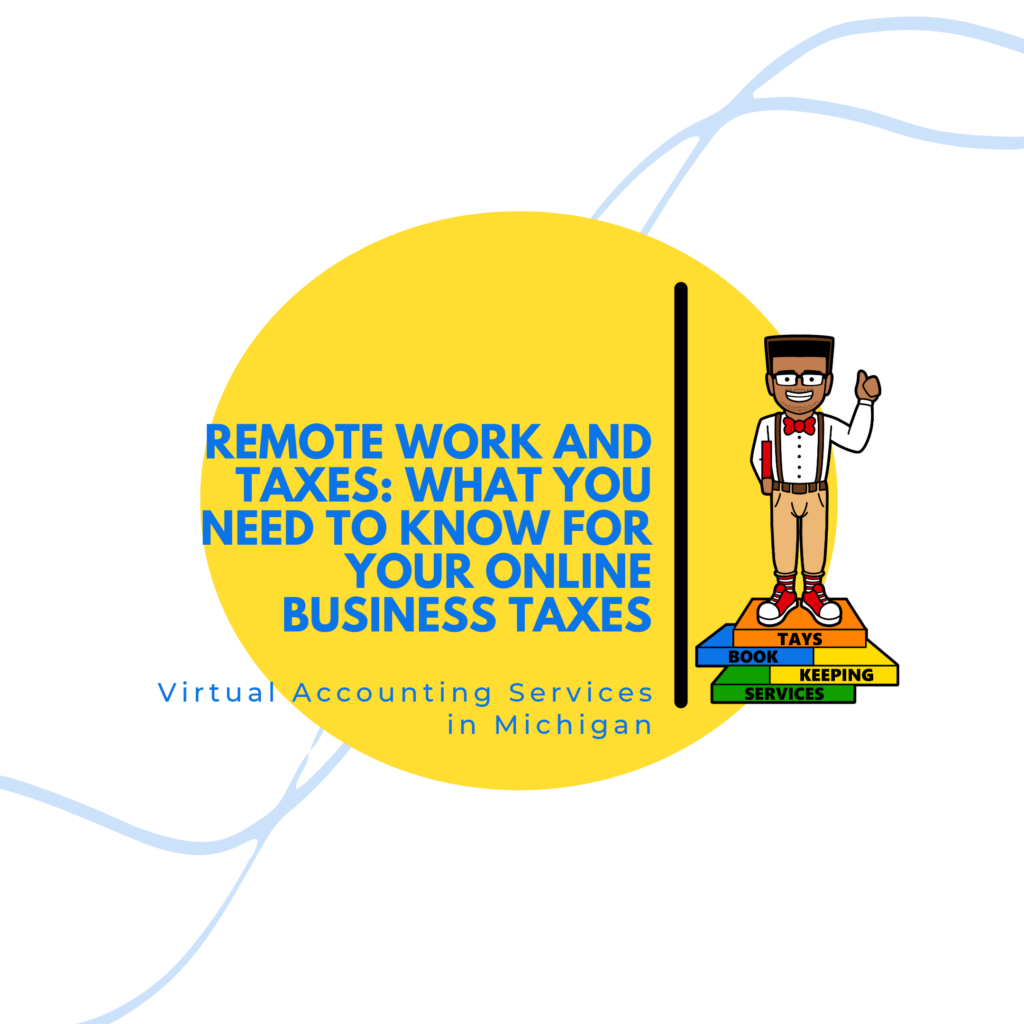Online business taxes can get confusing, especially if you don’t understand the tax implications of working remotely. You also need to understand the tax implications of being a remote worker and how to make sure you’re compliant with all relevant laws.
The taxation of remote work can be complex and varies from country to country, so it’s important to ensure you have all the necessary information. In this article, we’ll explain the key points that you need to consider when it comes to taxes for your virtual business.
We’ll cover topics such as the types of taxes that you may be liable for, as well as how to declare your income and other important factors. We also touch on how specific countries or regions deal with tax regulations for remote workers so that you can plan accordingly if needed.
By the end of this article, you will have an understanding of what needs to be taken into account when filing taxes and running an online business.
What Are the Rules for Remote Work and Taxes?
If your business has moved online, you may have a lot of questions about remote work and specifically online business taxes. The rules for taxes for remote workers can be complex and vary by location. Here are some key points to keep in mind:
- Employers must withhold federal income tax, Social Security taxes, Federal Unemployment Tax (FUTA), and Medicare taxes for remote workers.
- Remote workers do not have to file nonresident state tax returns unless they physically travel to another state and perform work while there.
- If a remote worker is a US citizen and works for an employer based in a convenience rule state, the worker’s income could be taxed by the employer’s state.
It’s important that you understand your obligations when it comes to filing taxes remotely. In general, understanding the differences between different tax treatments in various states will help you comply with tax laws while running your business efficiently.
Tax Implications of Working Remotely as an Employee
Working remotely can be a great gig, but it adds a layer of complexity to filing taxes. Generally, you must pay taxes in the state where you physically work, regardless of where your employer is based.
So, what does this mean for you? You may have to pay taxes in the state of the employer if that’s different from your home state. This raises the chance that you’ll face income tax liability in two different states if you’re working full-time across state lines.
On the other hand, companies with remote employees also have implications to consider when it comes to taxation. Depending on where the remote worker resides and works, employers may have to pay certain payroll taxes in multiple states—or even localities—which can be a headache to manage and keep track of, especially if there are multiple remote workers residing in different areas.
The bottom line: Whether you’re a business owner or an employee, understanding how tax jurisdictions apply to remote work is key.
How to Handle Self-Employment Tax as a Freelancer or Contractor
As a freelancer or contractor, one of the most important tax obligations you need to be aware of is self-employment tax. The self-employment tax rate is 15.3%, and it is based on your total net profits from your business. This includes the net income from any freelance work you do, as well as any other sources of income related to your business, such as investments or royalties.
Your obligations will vary depending on your overall net profit and loss each year. If you earn more from freelance work and/or other related business activities than what you have in expenses (including taxes), then you must pay self-employment tax quarterly via estimated payments. It is important to keep accurate records of all your income and expenses so that you know how much should be paid each quarter in taxes. If you fail to make estimated payments, the IRS may impose additional penalties or interest on your remaining balance.
Understanding How to File Your Online Business Taxes Remotely
When it comes to understanding taxes for remote workers, the biggest thing to keep in mind is that you will be required to pay taxes to the state in which you live. While this may seem like a daunting task, the process of filing taxes as a remote worker is quite straightforward.
Generally, you will only have to file and pay taxes in the state that you are a resident of. However, if you are travelling for work and working remotely in different states, it is important to stay up-to-date with the tax laws and regulations in those states—you may need to file taxes there as well.
One more point worth mentioning is that if you become a permanent remote worker (one who lives and works in a different state than their home state), they should consider filing their personal income tax returns in their new state of residence. This is an important consideration because your state of residence ultimately determines where and how much tax you owe.
The Benefits of Hiring an Accounting Firm in Detroit
For virtual businesses, hiring an accounting firm in Detroit can be a great decision. Accounting firms in Detroit have a commitment to developing their future and skilled professionals that make managing finances easier.
Experienced Professionals
The qualified professionals at these firms have years of experience and understand the unique challenges that arise for remote businesses. They also know the specific laws and regulations for Detroit businesses, which can be complicated depending on the type of business.
Economic Opportunities
Living in Detroit has economic advantages for accountants; there is currently a shortage of accounting graduates, making it easier to find experienced professionals who will work at competitive rates. The thriving economy also makes it attractive to start a business, as there are many resources available due to a large number of businesses in the city.
By hiring an accounting firm in Detroit, you can make sure your finances are being managed correctly and take advantage of the economic opportunities available to you as a remote worker.
Make Sure You Have the Necessary Documentation Ready
Running a virtual business can present a few unique challenges when it comes to taxes, so it’s important to make sure you have all the documentation you’ll need.
First, employers must review the different employment tax requirements based on the jurisdiction in which their remote employee works. This includes understanding applicable state, local and foreign taxes that may need to be withheld from employee wages.
In addition, remote workers may be subject to dual taxation – this means they may be required to file income tax returns in both their home country and any other jurisdiction in which they have earned income during the same tax period.
To avoid missing any important information or deadlines, employers should keep detailed records of any taxable income paid out to remote workers and provide clear documents of income earned and taxes paid. Examples of documents include paystubs, records of deductions and job expense reimbursements.
Having the right documentation ready will make your life much easier when it comes time to prepare your annual filing.
Conclusion
Managing taxes for remote work and virtual businesses can be challenging, but the right information can make the task manageable. Being aware of remote work tax implications will help you make informed decisions and remain in compliance with local and federal laws. Consider consulting an experienced accountant or tax professional if you’re unsure of any regulations or obligations related to your business. Staying on top of your tax-related responsibilities can help you save time and money and keep your business running smoothly.


